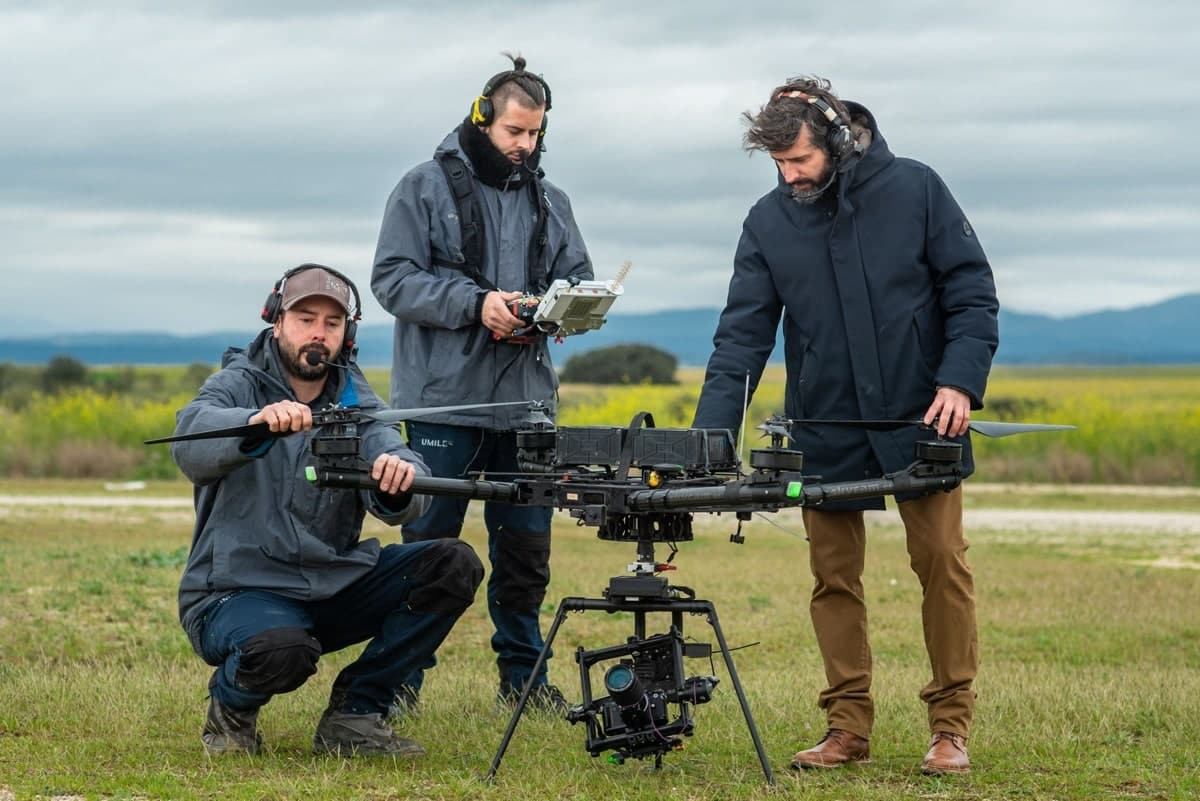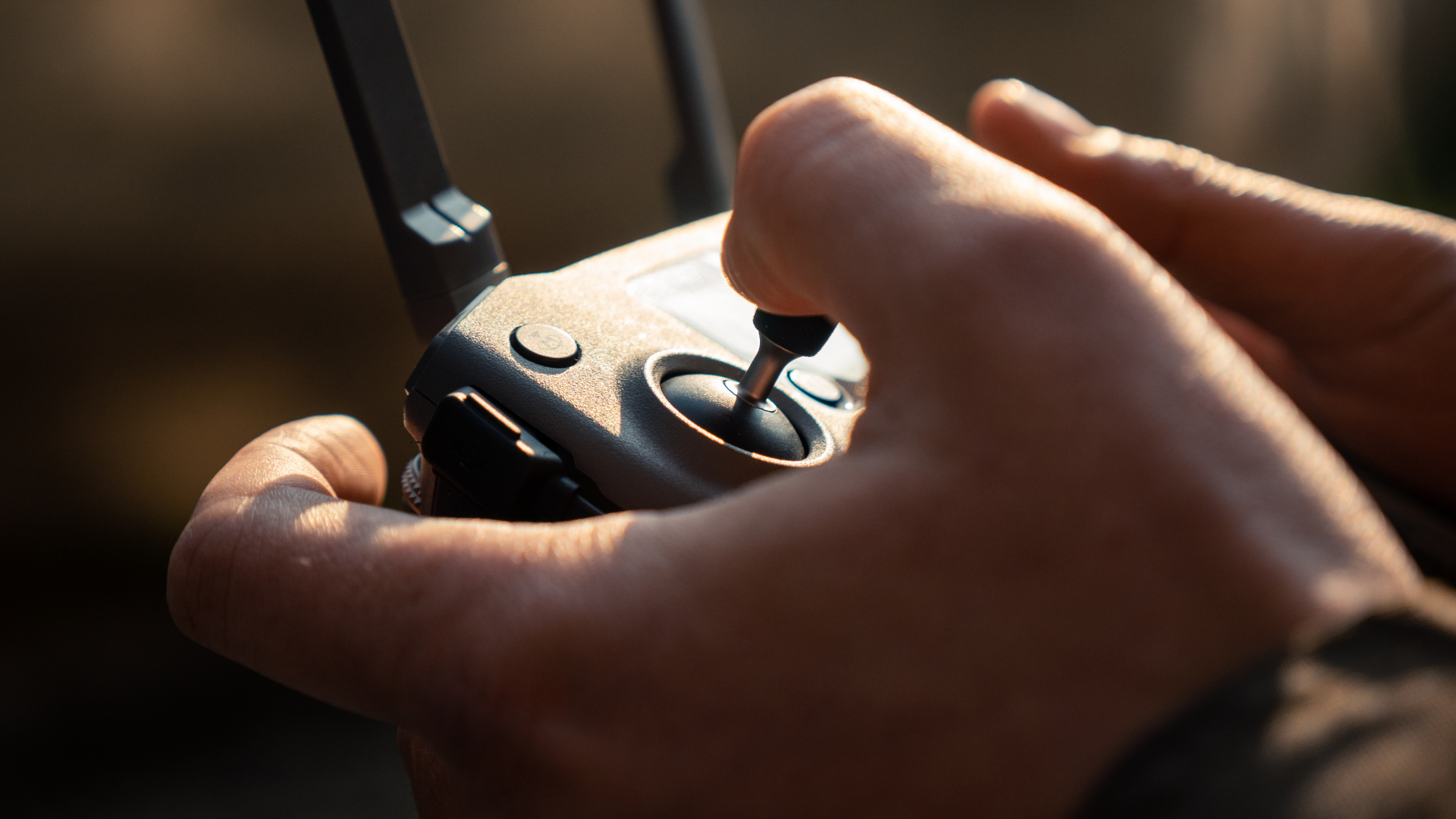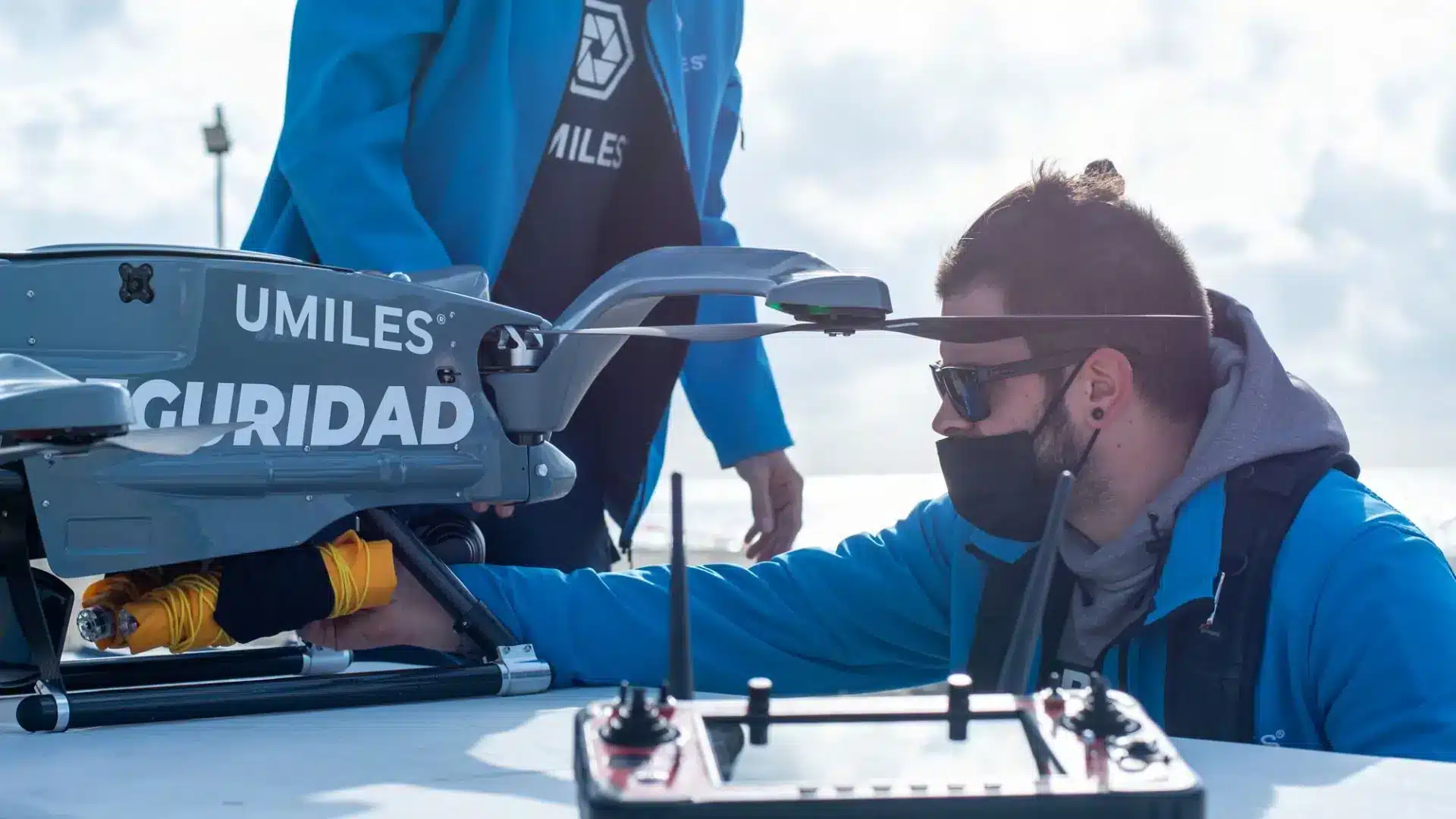The audiovisual sector is one of the areas where there is the greatest demand for drone pilots today. The number of existing audiovisual platforms and the increase in audiovisual productions of films, series and advertising, which seek to surprise the viewer with spectacular images, have led to an increase in aerial filming with drones in many projects and, therefore, an increase in work for specialist pilots in this sector.
If you want to become an expert drone pilot for audiovisual specialist you must first become a professional pilot and then specialize in the audiovisual sector by taking one of the courses approved by AESA or EASA. Let’s take a closer look at this profession with a great job projection nowadays and in the future.
What does the job of audiovisual drone pilot consist of?
Apart from being a professional drone pilot, the audiovisual specialist must know well all the phases of an audiovisual project, such as pre-production, production and post-production, as well as the phases of a shooting and when and how drones come into action.
When a production company hires a professional drone pilot specialized in audiovisuals, he/she will have to perform very specific functions:
Plan the shooting
The drone pilot will receive a script with all the aerial shots to be recorded with the drone and must analyze all the necessary aspects for the recording to run smoothly. For example, to know the production needs: type of drone to be used, cameras, to recognize the terrain where the shots will be taken, etc. The pilot will work in collaboration with those in charge of the shooting to solve all the problems that may arise and achieve an optimal shooting.
Recording
The pilot will work with the camera operator to set up the camera on the drone, prepare the camera angles, framing, lighting and all the accessories needed. Once the technical aspects have been prepared, the pilot must have a perfect handling of the drone to fly over the exact areas where the shots that the director wants will be recorded, according to the script and the shooting plan.
Video editing
After the recording of the required shots and, depending on the production, the pilot could also collaborate in the edition and editing of the project with the use of certain software that he/she has previously mastered due to the training received.

What kind of work does an audiovisual drone pilot perform?
Currently, professional pilots specialized in audiovisual projects carry out the following drone recording jobs:
– Film shoots.
– Shooting of television series.
– Shooting of commercials.
– Event filming (weddings, corporate events, fairs, etc.).
– Monitoring of sporting events (soccer matches, car or motorcycle races, athletics, etc.).
– 360º video production.
– Live transmission with drones.
And much more…
Do you want to work as an audiovisual drone pilot?
At UMILES University we offer you a series of essential courses to become a drone pilot specialized in the audiovisual area. First of all, you must obtain the official certificate of professional drone pilot STS, doing our professional course approved by AESA and EASA, where you can fly all types of drones under 25 kg, ie drones class C0 to C6.
Once you have passed the professional course, you will be able to specialize in the audiovisual area with our CEA Course (Audiovisual Specialist Course), taught by professional pilots with many hours of shooting in all kinds of audiovisual projects and with the most modern technical equipment. Students will be able to practice with real flights to be prepared for any type of situation that may arise in a film, television or event shooting.
Advantages of the use of drones in the audiovisual sector
Unmanned aircraft offer multiple benefits to professionals in the audiovisual sector. Let’s see the main advantages of drones applied to the audiovisual sector:
– When recording with drones saves a lot of resources, especially in renting light aircraft or helicopters, which was what was used until a few years ago.
– Drones make it possible to record improbable shots, from perspectives that have never been seen before, thanks to their versatility, small size, and their ability to reach inaccessible places.
– UAS can install high quality cameras at angles that would be unthinkable if they were installed on a light aircraft, helicopter or crane. The result of this work is spectacular images that are highly appreciated by today’s productions.
– The risks of accident or personal damage to the filming equipment are minimized, since the aircraft are unmanned. The only danger would be the destruction of the drone in case of collision or accident.
As we can see, the profession of drone pilot in the audiovisual sector is increasingly in demand by professionals in the field, hence its job outlook is very encouraging. If you want to be a professional pilot and specialize in this sector, do not hesitate to contact us to resolve any questions, we are waiting for you!


![¿Se puede volar un dron con lluvia? [Tus dudas resueltas]](https://umilesgroup.com/wp-content/uploads/2024/03/¿Se-puede-volar-un-dron-con-lluvia-Tus-dudas-resueltas.png)